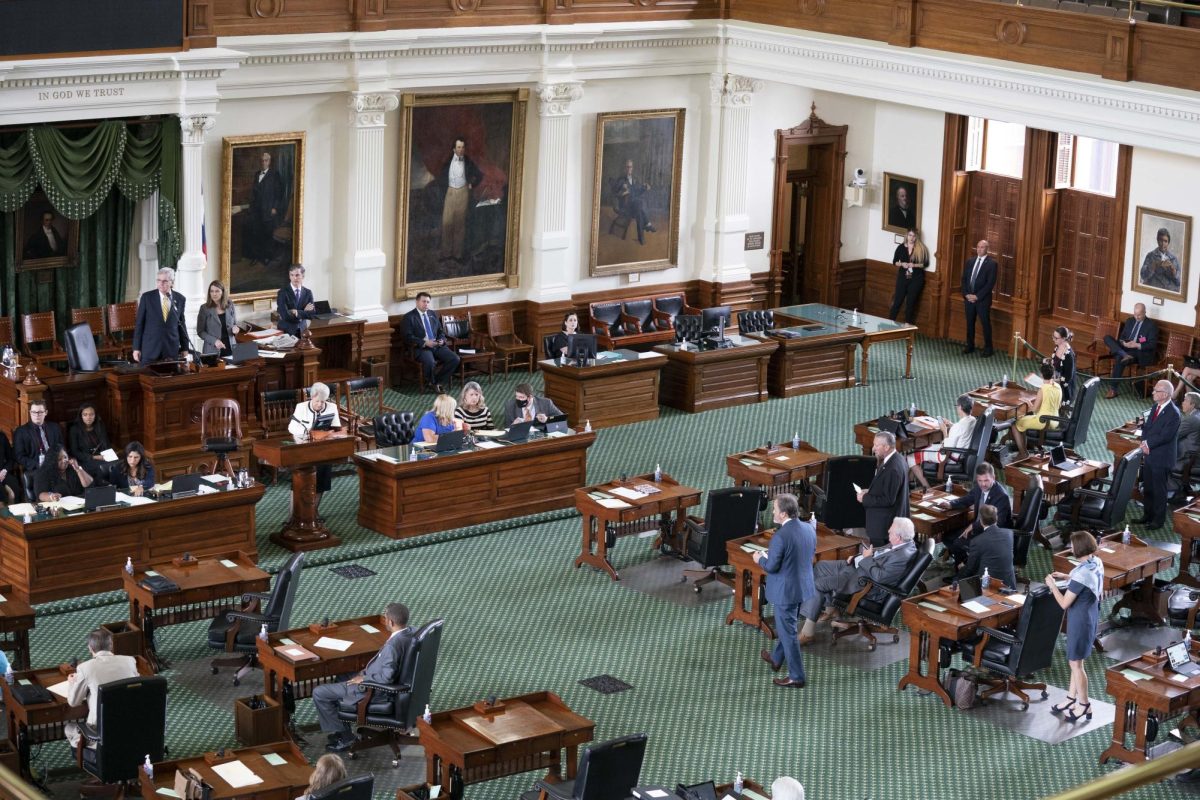House Bill 114 went into effect on September 1, 2023, increasing penalties for students found with a vape at school. If caught, the offense will send them to DAEP, the alternative disciplinary education program.
This new policy reflects a ‘tough on drugs’ approach trending among many Texas politicians – harsh punishments that are used as a tactic to scare away kids and those who are still using substances are shown no leniency.
“I think we need to discourage kids from using these vape pens, period…These kids are old enough to understand the consequences,” Rep. Ed Thompson said.
Since the start of enforcement of the bill, over 13,000 students have been disciplined with DAEP in the largest five school districts of the Houston area. This is in contrast to the 2.5 million middle and high school students who reported using e-cigarettes by the National Youth Tobacco survey in 2022.
However, the bill does not require apprehended students to participate in drug and alcohol support and recovery programs.
Critics of the bill have pointed to the emerging psychological consensus that drug and tobacco abuse is a treatable medical condition, one which does not improve by or merit punitive action.
“Yet, despite the overwhelming evidence supporting that position, drug addiction continues to be criminalized,” Director of the National Institute of Drug Abuse Nora D. Volkow said. “The USA must take a public health approach to drug addiction now, in the interest of both population well-being and health equity.”
Not only do many criticize the new bill for being too harsh, many also find fault in the bill’s overstretching of school resources.
“They wanted to take a tough stance, which I appreciate, but it’s got to be realistic for schools to manage,” College Park Principal Dr. Mark Murrel said. “Sometimes you don’t always agree…I think we made it right as a district to make it fair for kids.”
Conroe ISD has attempted to address many of the problems brought with the bill by creating in-school DAEPs. Essentially the same as ISS, the students remain on campus and are treated like an ISS student in everything except the terms used on their student and legal record.
“From a statistics standpoint, it looks like a big change, but from a reality standpoint, it’s not,” Dr. Murrell said.
This is to prevent the mixing of students who have committed a first-time minor offense of vaping with those who have been charged with felonies, such as bringing a firearm to school.
Dr. Murrell said, “We can’t use all of our tools on a first-time offense.” Especially since the school district’s ‘tools’ are limited, many schools evaluate using them on kids who don’t really need it will unnecessarily exasperate district resources.
“DAEP will become overcrowded, taking nonviolent students away from their regular class schedules, diluting the quality of education for students in the DAEP, and possibly requiring additional staffing for our DAEP,” Haskell ISD said in a statement.
Many administrators worry about cannabis vapes, which when put in context with their criminal charge and the current fentanyl crisis, pose a high danger to kids.
“The bigger problem are the THC vapes,” Dr. Murrell said. Since THC vaping is a felony charge, it constitutes an expulsion.
THC vaping poses a larger danger to students because “they are not manufactured in a lab, they’re manufactured in a home, and that’s where we’ve seen many cases of fentanyl added to THC vapes,” Dr. Murrell said.
College Park administrators warn students against thinking that vaping is cool in school and encourage students to question, is it worth it? “We eventually catch everybody,” Dr. Murrell said.
















